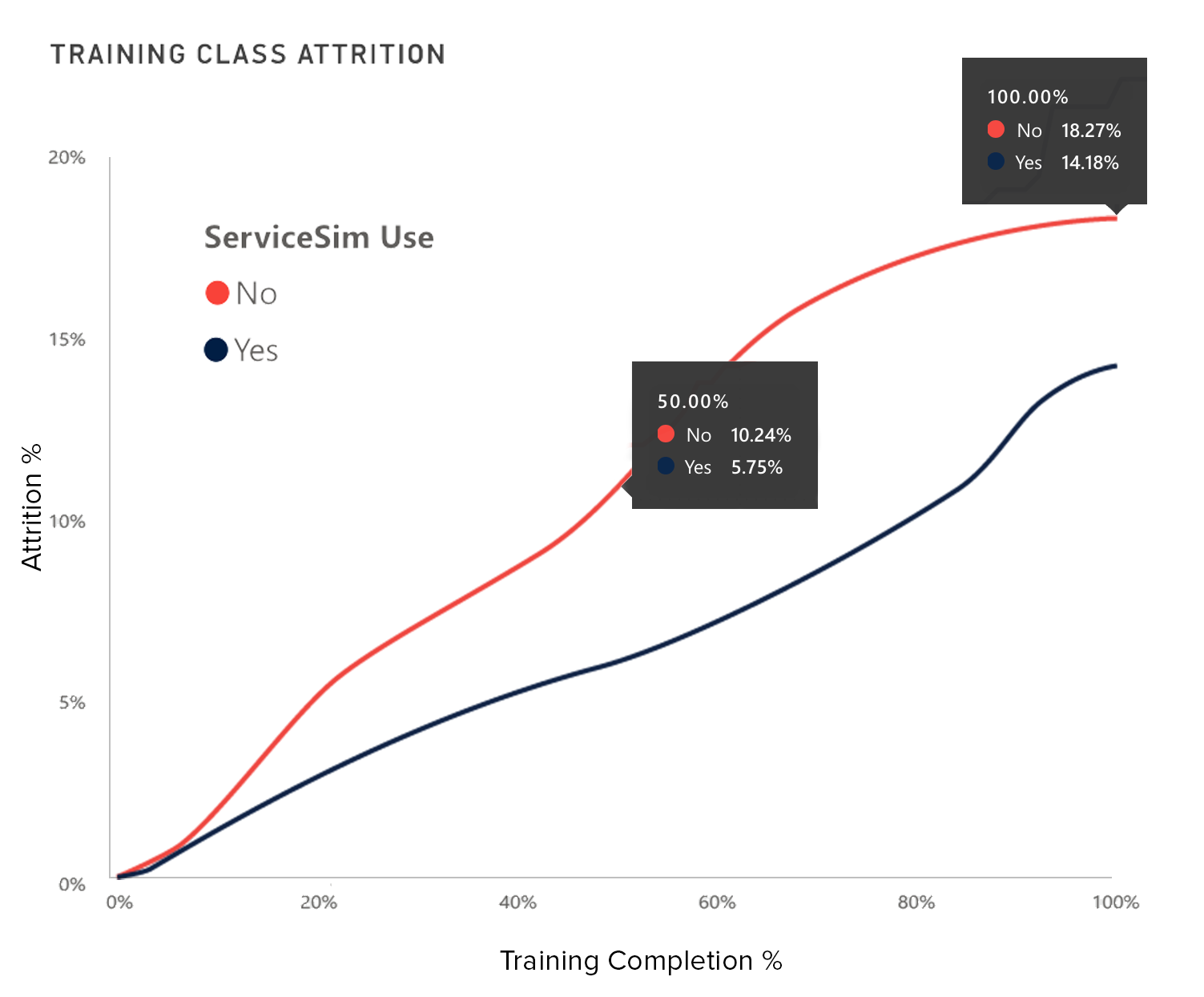As AI’s impact continues to ripple throughout virtually every industry, one area where artificial intelligence (AI) has sparked a lot of optimizing is customer service, where CX leaders are imagining a world in which AI-powered chatbots can respond to any customer inquire through automated messaging services. But as many recent AI failures in the customer service world have illustrated, while such innovations hold great potential, they are not without their challenges and risks.
Let’s discuss the pitfalls of using AI for customer service and illustrate how non-customer facing AI, like AI-enabled trainers, can help businesses tap into the power of AI without negatively impacting their customer relations.
Download Now: Your Roadmap to Successful AI Implementations in the Contact Center
The Double-Edged Sword of AI in Customer Service
As AI becomes more integrated into customer service environments, businesses must exercise diligence in order to maximize its benefits while mitigating adverse outcomes. Here are the four key challenges of implementing AI in customer service:
Challenge 1 – Deficient Chatbots and Inaccurate Information
As previously mentioned, deficient chatbots can pose significant problems for businesses. Inadequate AI implementation may lead to bots providing incorrect or irrelevant information, resulting in customer dissatisfaction, damaged brand reputation, or, in some cases, legal issues. Not every customer query fits neatly into a pool of predefined scripts, and if the chatbot lacks adequate natural language processing capabilities, it may fail to address more complex or nuanced questions effectively. Additionally, even if chatbots are programmed to escalate complex queries to human agents, the potential for inaccurate or misleading advice still exists, further complicating the customer service experience.
Challenge 2 – Privacy and Security Concerns
Cybersecurity is a growing concern for businesses, particularly in the world of customer service, where sensitive information is frequently exchanged. AI-powered chatbots may inadvertently expose sensitive user data or even be susceptible to malicious attacks. When customers trust a company with their personal information, they expect it to be handled securely, and any data breaches or privacy violations could have long-lasting consequences for the business.
Moreover, chatbots that operate using AI algorithms need access to vast amounts of user data to function effectively. This data could be misused by malicious agents or even applied unethically by certain corporations. As such, businesses must ensure that privacy and data protection policies are upheld throughout the implementation of AI in customer service.
Challenge 3 – Lack of Empathy and Emotional Intelligence
While AI has made impressive strides in tackling complex problems, it is still incapable of providing the level of empathy and emotional intelligence exhibited by human agents. Chatbots may struggle to detect a customer’s emotional state, which could lead to the bot producing responses that are perceived as insensitive or inappropriate. When customers turn to a company for support, they desire personalized and empathetic responses. While chatbots can be efficient in handling FAQs, the inability to communicate genuine empathy may leave users feeling unsatisfied or frustrated.
Challenge 4 – Limited Scalability and Customization
Although AI-driven chatbots can handle an impressive volume of queries simultaneously, their scalability and customizability are ultimately limited to their programming and learning capabilities. In dynamic industries where businesses must adapt to changing circumstances and market conditions, having an inflexible and unadaptable chatbot may bottleneck progress.
Developing AI-driven customer service tools that can scale effectively and anticipate unique situations is both time-consuming and expensive. In some cases, the effort required to update and maintain a high-performing AI chatbot might not be worth the potential benefits it offers.
See How ServiceSim is Like AI-enabled Batting Practice for your Agents
A Safer Approach: AI-Enabled Trainers
Taking into consideration the various challenges and risks linked to AI in customer service, businesses should strive for a balanced approach when embracing this powerful technology. Integrating AI in non-customer-facing ways, like using AI-enabled trainers such as ServiceSim, can provide a more efficient and less risky solution.
ServiceSim, for example, offers a unique way to harness the power of AI without directly affecting customer service interactions. By using AI to train and support customer service agents, businesses can boost their productivity and enhance problem-solving skills without risking negative customer experiences. This approach to AI implementation allows agents to combine their innate understanding of human emotions with the efficiency and analytical capabilities of AI, ensuring a more personalized and satisfying customer service experience.
Embrace the Power of AI, But Tread Carefully
AI has already begun to revolutionize the customer service industry, and there is no doubt that it will continue to impact this field significantly. However, businesses must be conscious of the challenges and potential pitfalls that accompany AI as a customer service tool so they can develop strategies to balance the benefits and risks. By utilizing AI-enabled trainers like ServiceSim by Vistio, companies can harness the power of AI in a safer manner – one that enhances their productivity and decision-making capabilities without jeopardizing the relationships they’ve built with their customers.
SUBSCRIBE FOR EMAIL UPDATES

